Steps to Perform Your Own Employment Background Check

Understanding Why You Should Run a Background Check on Yourself
When preparing for job applications or interviews, most candidates focus on polishing their resumes, practicing for interviews, and networking. However, one essential yet often overlooked step is conducting a background check on yourself. A personal background check allows you to see what potential employers might discover about you, enabling you to address discrepancies, correct inaccuracies, and prepare for any questions that may arise during the hiring process.
The Importance of Running a Background Check on Yourself
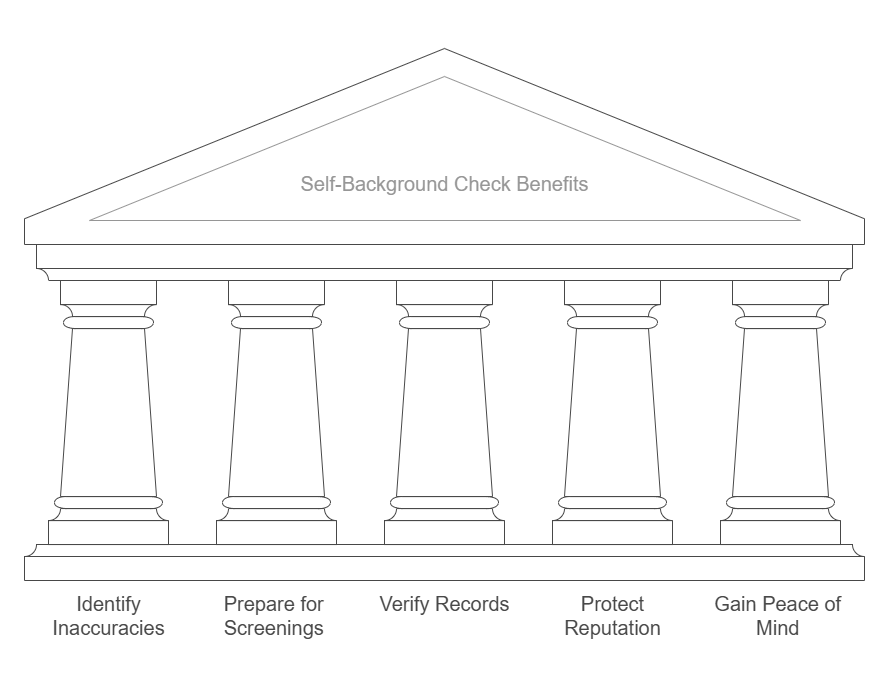
Conducting a background check on yourself provides several benefits, particularly when entering the job market or transitioning to a new role. Here are some key reasons why you should consider it:
- Identify Inaccuracies: Errors in background checks are more common than you might think. They may include incorrect criminal records, outdated employment information, or incomplete education details. Catching these errors early can prevent misunderstandings during employer screenings.
- Prepare for Employer Screenings: Many employers use background checks as a critical part of their hiring process. Reviewing your own background allows you to anticipate questions or concerns and be prepared to explain any potential issues.
- Verify Your Records: A self-background check helps you confirm that your records match the information you provide on job applications, including dates of employment, education credentials, and any licenses or certifications.
- Protect Your Reputation: If you’re applying for high-profile or sensitive positions, ensuring your background is accurate can protect your professional reputation and increase your chances of securing the role.
- Gain Peace of Mind: By knowing exactly what your background check includes, you can enter the job market with confidence, free from uncertainty about what employers might uncover.
Scenarios Where a Personal Background Check Is Beneficial
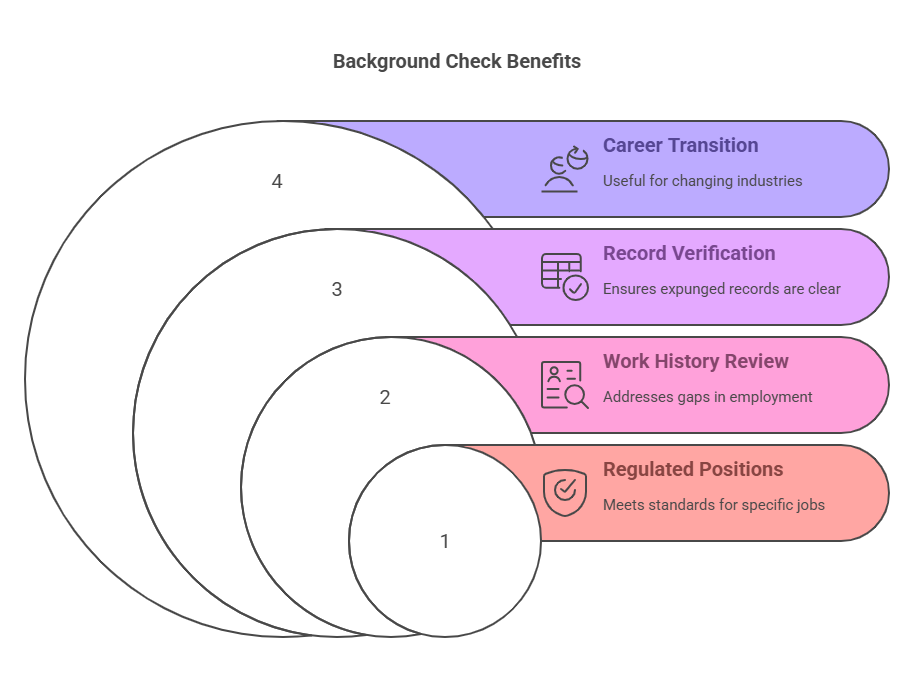
Running a background check on yourself can be particularly useful in the following situations:
- Transitioning Careers: If you’re moving to a new industry or job role, a background check ensures that your records are accurate and up-to-date.
- Expunged or Sealed Records: If you’ve had criminal records expunged or sealed, verifying that they no longer appear on background reports is essential.
- Inconsistent Work History: If your work history includes gaps or short-term roles, reviewing your records can help you address potential red flags.
- Applying for Regulated Positions: Jobs in industries like finance, healthcare, or education often require thorough background checks. Ensuring your records meet these standards is crucial.
What Information Is Typically Included in a Background Check?
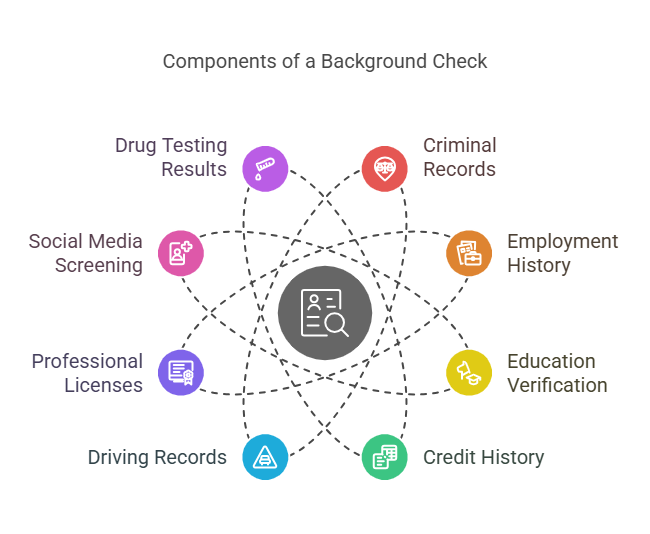
To understand what employers may learn about you, it’s important to know what a standard background check covers. While the exact details vary depending on the employer and position, the following are common components:
- Criminal Records: This includes arrests, convictions, warrants, and sometimes expunged records. Employers often review this to ensure workplace safety and compliance with industry regulations.
- Employment History: Verification of previous employers, job titles, and dates of employment. Discrepancies in this area can raise red flags for employers.
- Education Verification: Confirmation of degrees, certifications, and academic achievements. Some checks may also include verification of GPA or honors.
- Credit History: For roles in finance or positions of trust, employers may review your credit report to assess financial responsibility.
- Driving Records: For roles involving driving (e.g., delivery drivers, chauffeurs), employers may review your driving history, including accidents and violations.
- Professional Licenses: Verification of any licenses or certifications required for the position, such as a nursing license or CPA designation.
- Social Media Screening: Some employers may review public social media profiles for insights into your behavior and professionalism.
- Drug Testing Results: In industries with safety-sensitive roles, drug testing is often part of the background check process.
The Potential Impact of Errors in Background Checks
Mistakes in background checks can have serious consequences, including disqualification from a job opportunity. Common errors include:
- Misidentification due to similar names or social security numbers.
- Failure to update expunged records.
- Incorrect employment or education details.
By conducting a self-background check, you can catch and address these issues before they impact your job search.
Why Employers Conduct Background Checks
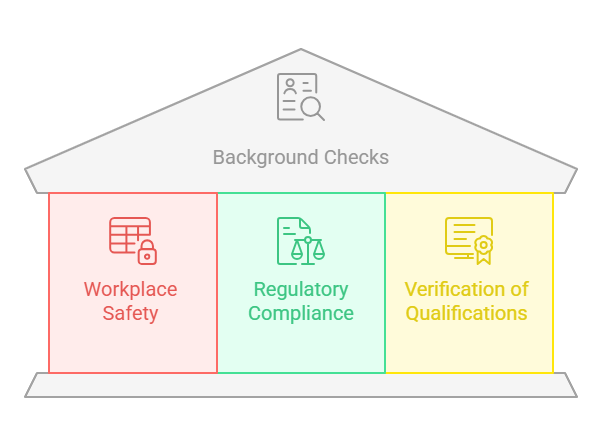
Employers use background checks to ensure they are hiring trustworthy and qualified candidates. Key reasons include:
- Workplace Safety: To reduce the risk of hiring individuals with violent or criminal histories.
- Regulatory Compliance: To meet industry-specific requirements, such as in healthcare or finance.
- Verification of Qualifications: To ensure candidates possess the skills, education, and experience claimed on their resumes.
Running a background check on yourself is a proactive step that empowers you to take control of your job search. By identifying potential issues early, you can address them effectively and present yourself as a confident and prepared candidate.
Step-by-Step Guide to Getting a Background Check on Yourself
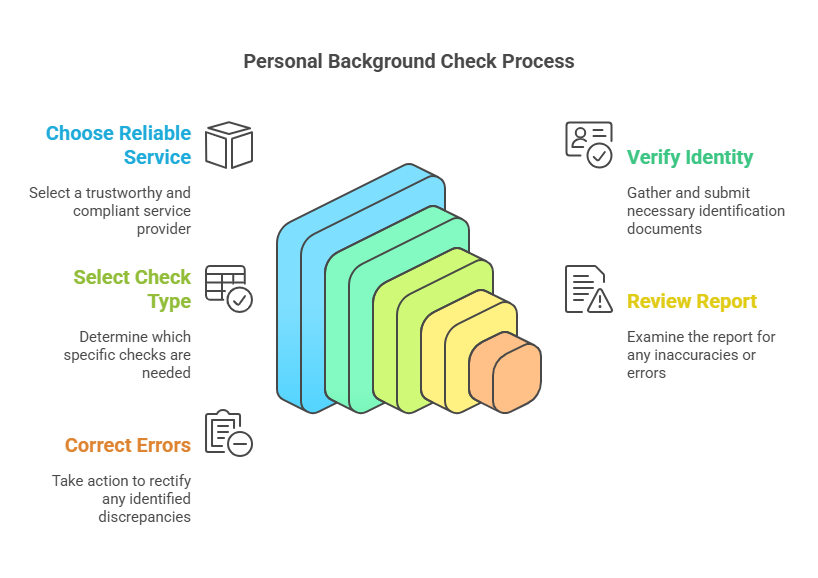
Running a background check on yourself is a proactive way to prepare for the job application process. By following a structured approach, you can ensure the information in your records is accurate and aligned with what potential employers may see. Below is a detailed guide to help you complete this process effectively.
Step 1: Identify Reliable Background Check Services
The first step in obtaining a background check on yourself is selecting a trustworthy service. Many online platforms offer personal background checks, but not all are reliable or compliant with legal standards.
When choosing a service, look for the following:
- FCRA-Compliant Providers: Ensure the company adheres to the Fair Credit Reporting Act (FCRA), which governs the accuracy, privacy, and fairness of consumer reports.
- Reputation and Reviews: Research the provider’s reputation by checking online reviews and testimonials.
- Comprehensive Reports: Select a service that offers reports covering criminal records, employment verification, education history, and other relevant information.
- Data Security: Choose a platform with robust data security measures to protect your sensitive information.
Example of a Trusted Service:
Exact Background Checks is a reputable provider that offers comprehensive, FCRA-compliant background checks. Their services are designed for both individuals and employers, ensuring accurate and detailed results.
Step 2: Verify Your Identity and Gather Necessary Documents
Background check providers require you to verify your identity before accessing your records. Prepare the following documents:
- Government-Issued ID: A valid form of identification, such as a driver’s license, passport, or state ID.
- Social Security Number (SSN): Many services use your SSN to match records accurately.
- Proof of Address: Utility bills, bank statements, or rental agreements may be required to confirm your current address.
Ensure all documents are up-to-date and legible to avoid delays in the process.
Step 3: Choose the Type of Background Check You Need
The type of background check you conduct depends on your specific needs and the requirements of your desired job. Below are common types of checks to consider:
- Criminal Records Check:
- Purpose: To verify any past convictions, arrests, or warrants.
- How to Access: Check your local courthouse, state databases, or use a service like Exact Background Checks for a comprehensive search.
- Employment Verification:
- Purpose: To confirm your previous employers, job titles, and dates of employment.
- How to Access: Contact past employers directly or use a third-party verification service.
- Education Verification:
- Purpose: To validate your degrees, certifications, and academic achievements.
- How to Access: Request transcripts or degree verification from your educational institutions.
- Credit Report Check:
- Purpose: For positions in finance or trust-based roles, employers may review your financial history.
- How to Access: Obtain a free annual credit report from sites like AnnualCreditReport.com.
- Driving Records Check:
- Purpose: For roles requiring driving, such as delivery or transportation jobs.
- How to Access: Request your driving history from your state’s Department of Motor Vehicles (DMV).
- Social Media Screening:
- Purpose: To review your online presence and ensure it aligns with professional standards.
- How to Conduct: Search your public social media profiles and remove any content that could be considered unprofessional or controversial.
Step 4: Review the Final Report for Errors
Once you’ve obtained your background check report, carefully review it for inaccuracies. Common areas to examine include:
- Criminal Records: Ensure there are no incorrect entries or outdated information. If you’ve had records expunged or sealed, verify that they no longer appear.
- Employment History: Check for discrepancies in job titles, dates, or employers.
- Education Credentials: Confirm that your degrees and certifications are listed correctly.
- Credit History: Look for any fraudulent activity or errors that could impact your reputation.
Step 5: Correct Discrepancies and Inaccuracies
If you identify errors in your background check report, take immediate steps to correct them. Here’s how:
- Contact the Reporting Agency:
- Reach out to the background check provider or reporting agency and explain the error.
- Provide supporting documentation, such as court records, employer letters, or educational transcripts.
- File a Dispute:
- If the error persists, file a formal dispute with the agency. Under the FCRA, they must investigate and resolve disputes within 30 days.
- Request Updates:
- Once corrected, request an updated report to ensure the changes are reflected.
Step 6: Ensure Your Records Are Accurate and Up-to-Date
Maintaining accurate records is an ongoing process. Regularly review your personal information to ensure it remains current, especially if you’re actively job hunting. This includes:
- Keeping contact information updated with past employers and educational institutions.
- Monitoring your credit report for changes or fraudulent activity.
- Staying informed about changes in local or federal regulations that could impact your background records.
Additional Tips for Preparing for Employer Screenings
To further enhance your readiness for pre-employment background checks, consider the following:
- Understand Employer Policies: Review the company’s background check policy to know what areas they will evaluate.
- Communicate Proactively: Inform the employer about any potential red flags, such as gaps in employment or past offenses, and explain the circumstances.
- Consult a Legal Professional: If you have concerns about specific records, seek legal advice to understand your rights and options.
How Exact Background Checks Can Help
Exact Background Checks offers a range of services tailored to individuals preparing for employment screenings. Their comprehensive reports cover:
- Criminal background checks.
- Employment and education verification.
- Credit history reviews.
- Driving records and more.
By using a trusted provider like Exact Background Checks, you can ensure your report is accurate, compliant, and ready for employer review.
Running a background check on yourself is a valuable investment in your career. By following these steps and utilizing reliable services, you can gain a clear understanding of your records, address potential issues, and confidently navigate the hiring process.




This is such an insightful article! Running a background check on yourself is a smart move to ensure your records are accurate and align with what employers might see.